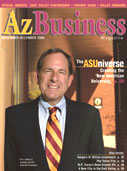Note: All fields are required.
from our blog
February 10, 2021
Seatback Failures
Front occupant seatbacks play a vital safety role in rear-end crashes, similar to the purpose of airbags and seatbelts in frontal impacts. In a rear impact, a front seat should be designed to absorb energy and contain the occupant in the front seating space. Weak, defective front seats can fail, collapse and cause front occupants […]

Auto Insurers Accused of Discriminatory Practices in Policy Pricing
To drive a vehicle on roadways in the United States, it must be insured. Although the type of automobile insurance required varies state by state – Arizona operates under a “fault” auto insurance model – every driver must carry insurance coverage on their vehicle and must also show proof of this insurance to the state’s Department of Motor Vehicles, as well.
It is common knowledge that certain areas of the country and certain age brackets have higher insurance rates than others. However, few people realize that many insurance companies also use education and occupation as categories to set rates for auto insurance coverage, as well.
The Consumer Federation of America (CFA) conducted a study to determine how this country’s ten top insurance companies priced their policies. In its study, CFA went online to receive quotes for two hypothetical customers – a factory worker with a high school diploma and a plant supervisor with a college degree – in ten major urban areas and found discriminatory practices in use by five of the top insurance companies in the study.
CFA discovered that these five insurance companies used education level and occupation as a criteria when setting rates. The quotes for liability insurance for the factory worker ranged from 9 percent to 45 percent more than for that of the plant supervisor. One insurance company would not even quote a rate for a high school graduate, but would quote a rate for a college graduate.
The director of CFA, Stephen Brobeck, said that these insurers are discriminating against lower income and less educated workers, workers who are faced with the choice of “paying these high, and often unaffordable rates, or breaking the law by driving without insurance.” He estimates that one-quarter to one-third of drivers earning less than $36,000 a year drive uninsured.
On its website, the Insurance Information Institute posted a response to the CFA study:
“No matter their station in life, dozens of auto insurers are competing for the business of every driver who resides in the cities CFA surveyed for its report. These market forces have created a favorable situation for the nation’s drivers when considering what they’ve had to pay for other products and services essential to their daily lives.”
If a driver is not satisfied with their auto insurer, the institute suggests the driver should “shop around.”
CFA believes that automobile insurance companies should only use factors related to risk – moving violations, accidents, miles driven, etc. – to price their policies, and asked lawmakers and insurance regulators to ban the use of using these two demographic factors, education and occupation, for setting insurance policy prices.

quick links
9375 E. Shea Blvd.
Suite 100
Scottsdale, Arizona 85260
Telephone 480-874-2918
Facsimile 480-588-5063
Mailing Address:
Post Office Box 12877
Scottsdale, Arizona 85267





 Subscribe by Email
Subscribe by Email Shane Harward
Shane Harward Find us on Facebook
Find us on Facebook

